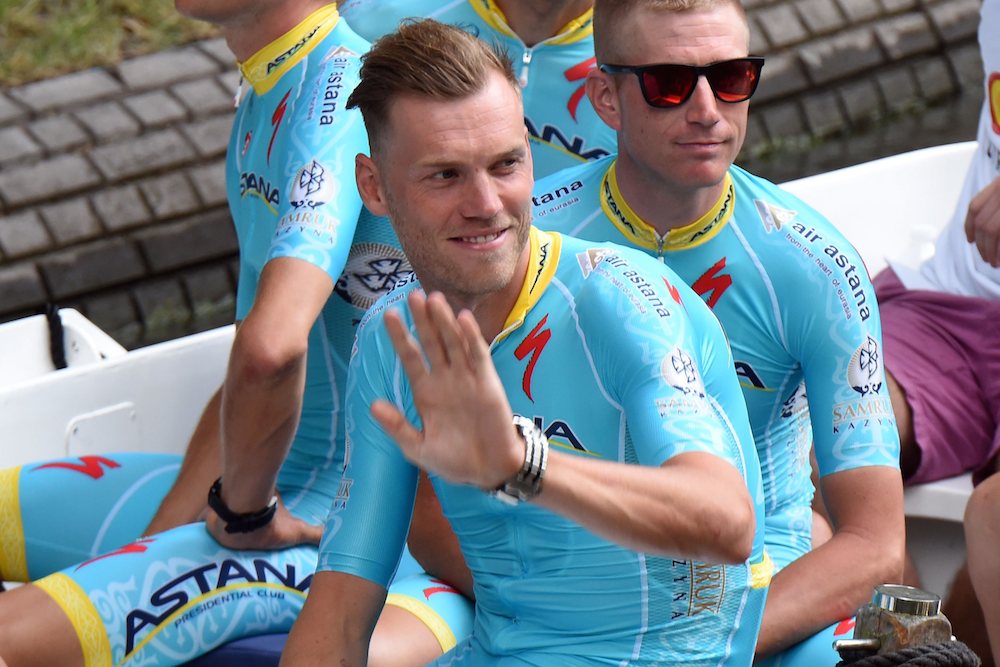Astana ejected from MPCC over doping issues
Kazakh team was suspended in July and has now been fully removed from the Movement for Credible Cycling group

Lars Boom during the Team Presentation of the 2015 Tour de France
The latest race content, interviews, features, reviews and expert buying guides, direct to your inbox!
You are now subscribed
Your newsletter sign-up was successful
Astana have been removed from the Movement for Credible Cycling (MPCC) after allowing Lars Boom to start the Tour de France with low cortisol levels.
The Kazakh WorldTour team had been suspended from the organisation since July when Boom took to the start line with the rest of the Astana team at the Grand Départ in Utrecht.
The Dutch rider later withdrew ahead of stage 10 due to illness.
Although not against UCI or WADA rules, the MPCC requires riders to be rested when their cortisol levels drop below recommended values.
>>> How scientists are fighting doping in cycling
The pressure group released a statement detailing their decision, and said that "the Board of directors of MPCC has decided to exclude Team Astana for non-compliance with the 9th article of the internal regulation".
Cortisol hormones can be administered to riders by a doctor and are permissible under the UCI's Therapeutic Use Exemption (TUEs) conditions. However, as the statement goes on to detail, "the use of that medicine has frequently been abused in the history of sports (including in cycling) for the purpose of increasing performance".
The latest race content, interviews, features, reviews and expert buying guides, direct to your inbox!
The incident with Boom follows several doping cases involving Astana riders towards end of last season including positives for the Iglinskiy brothers which put the team's WorldTour licence in jeopardy.
Jack Elton-Walters hails from the Isle of Wight, and would be quick to tell anyone that it's his favourite place to ride. He has covered a varied range of topics for Cycling Weekly, producing articles focusing on tech, professional racing and cycling culture. He moved on to work for Cyclist Magazine in 2017 where he stayed for four years until going freelance. He now returns to Cycling Weekly from time-to-time to cover racing, review cycling gear and write longer features for print and online.